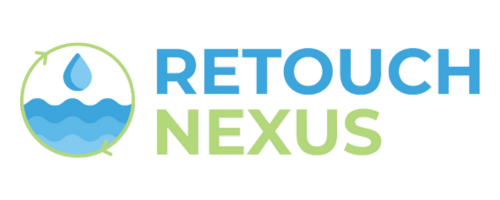Tackling Water Scarcity
RETOUCH NEXUS: Pioneering Smart Water Governance
Join us in our mission to tackle water scarcity through innovative and inclusive Water-Energy-Food-Ecosystems (WEFE) Nexus approaches that ensure a sustainable and resilient future for the EU water economy.
Understanding the Challenge
The Growing Need for Integrated Water Management
Water scarcity is a pressing issue that threatens socio-economic development and environmental sustainability. To address this, the RETOUCH NEXUS project promotes an integrated Water-Energy-Food-Ecosystems (WEFE) Nexus approach. This approach supports the EU water economy by considering ecological and social factors, ensuring that water governance practices are coherent and effective across different levels and sectors.
Objectives and Approach
The RETOUCH NEXUS project aims to design and advance integrated, innovative, and inclusive Nexus-smart water governance schemes and institutional settings. By leveraging the Water-Energy-Food-Ecosystems (WEFE) Nexus, the project seeks to ensure a secure water future in the EU that is resilient to climate change. Our approach involves proposing, assessing, and optimizing Nexus-smart methods across five innovative dimensions of water governance.
Innovative Dimensions
1. Monitoring water governance using Nexus-smart indicators.
2. Advocating for integrated, climate-resilient water governance systems.
3. Designing sustainable cross-sectoral, multi-level water systems.
4. Promoting transparent and inclusive water governance.
5. Endorsing scalable and desirable Nexus-based practices.
Evidence-Based Methodology
Our evidence-based methodology ensures that all proposed solutions are grounded in robust empirical evidence and conceptual advances. This approach enables us to provide actionable insights and practical solutions for sustainable water governance.
Understanding the Challenge
The WEFE Nexus Approach
The Water-Energy-Food-Ecosystem Nexus (WEFE) is a holistic concept that recognises the interconnectedness of water, energy, food and ecosystems. By optimising trade-offs and enhancing synergies, the WEFE Nexus approach aims to promote sustainable and resilient water management practices. RETOUCH NEXUS builds on this approach to generate conceptual advances and empirical evidence to support the development of robust water governance systems at EU level.
Using the WEFE Nexus approach, RETOUCH NEXUS seeks to design and implement innovative, inclusive and climate-resilient water governance systems. By monitoring and evaluating existing practices, advocating integrated solutions and promoting transparent engagement mechanisms, the project aims to secure a sustainable water future for the EU.
Expected Results
Outcomes
The RETOUCH NEXUS project is expected to deliver significant results and outcomes, including the development of 35 water governance metrics to support the implementation of the European Green Deal and the Sustainable Development Goals. At least 6 water governance schemes will be designed to support coordination between water policies and improve policy implementation for securing sustainable water use across sectors. Additionally, the project will develop and test economic instruments, link water to economic and social sectors, and help society implement measures for sustainable water management. Furthermore, 12 engagement mechanisms will be established to empower citizens to influence water governance decisions.
